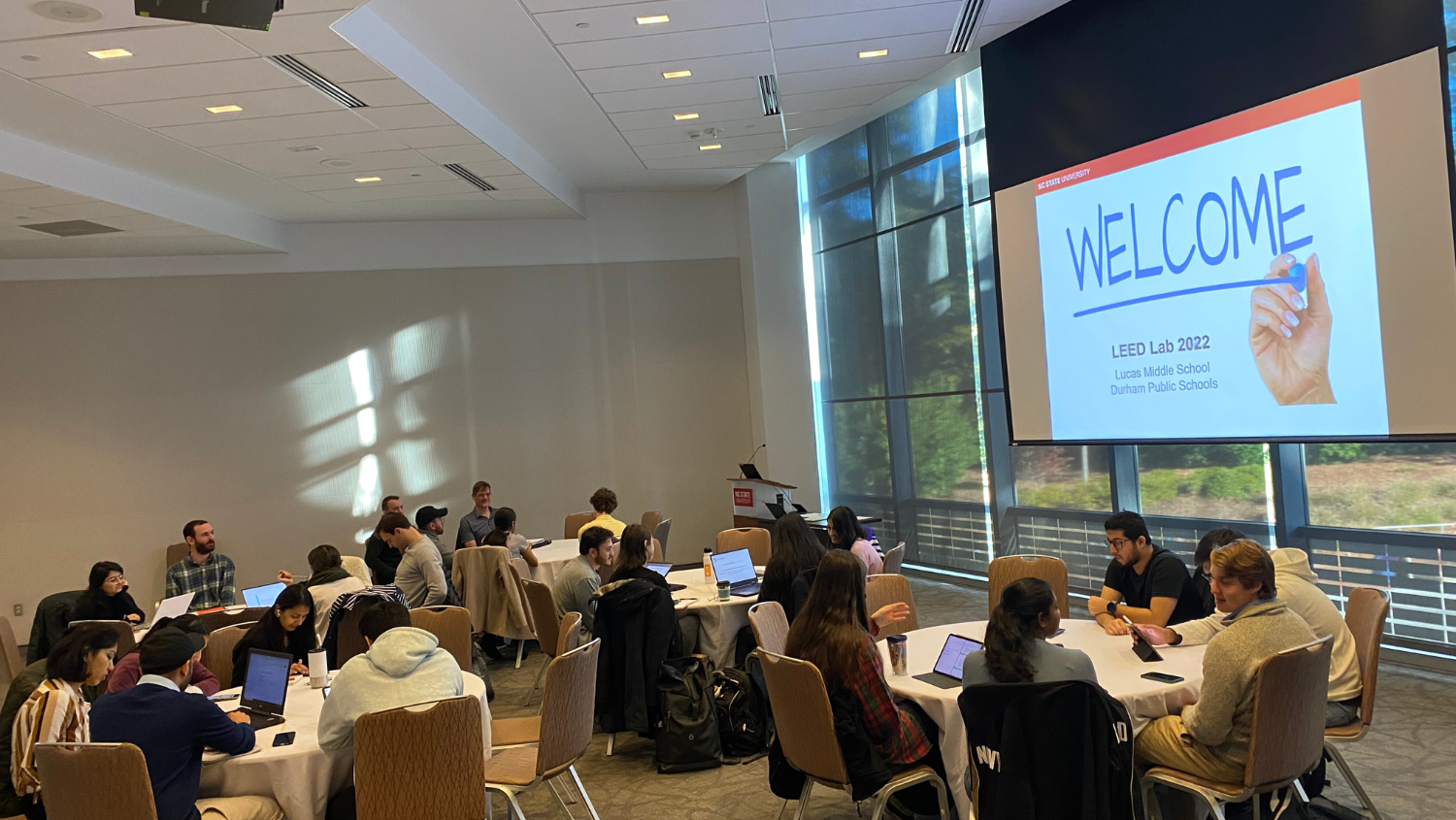Students “LEED” the Way for Durham Public Schools

NC State’s LEED Lab course went off-campus for the first time in its 8-year history this fall semester. Students partnered with Durham Public Schools (DPS) to apply their sustainable building classwork to Lucas Middle School and make recommendations for it to achieve a LEED rating certification.
LEED Lab, which is co-instructed by Traci Rose Rider of the School of Architecture in the College of Design and Liz Bowen of the NC Clean Energy Technology Center, focuses on the Leadership in Energy and Environmental Design national certification for Building Operations and Maintenance.
Students worked with facility professionals from DPS, NC State and the community to analyze and understand the school’s building operations across transportation, water, energy and atmosphere, materials and purchasing, indoor environmental quality and innovation.
Nyls Korstanje, a sustainable materials and technology major in the College of Natural Resources wanted to learn more about the LEED rating systems.
“I took this course because I believe in the impact that sustainable buildings can make on the world,” he said.
Traci Rose Rider sees LEED Lab as bridging academia and facilities to “uniquely allow for creative collisions between disciplines, sparking new ideas that lead to innovation.”
“Classes like LEED Lab are great examples of how students can begin to work together meaningfully on real-world projects that matter,” Rider said. “We see the immense value in interdisciplinary collaboration.”
While Lucas Middle School was originally certified LEED Gold in the Building Design and Construction rating system a decade ago, changes over time prompted DPS officials to partner with NC State on how to meet new benchmarks for sustainability and wellness.
“Buildings we build and maintain today have to withstand the demands of the future,” said Bowen. “We have to meet these and other factors in order for a building to be a good investment and withstand the test of time.”
Students in the course compared the current state of operations at Lucas Middle School to DPS goals and LEED standards. On the final day of the course, they presented their analysis to the project partners, with proposed strategies including:
- Better use of current natural light infrastructure (solar tubes) to reduce energy consumption
- Incorporating tighter heating and cooling schedules during the school week
- Installing solar canopies in the parking lots and carpool waiting areas
- Hosting a waste audit to determine diversion opportunities, such as composting
- Increasing light fixture shielding to provide more visibility at night while reducing light pollution
- Incorporating water leak detection and monitoring systems
- Creating a sustainable purchasing policy
With the above sustainability recommendations, Lucas Middle School could be the first public school in North Carolina to achieve a LEED Operations + Management certification. The strategies also have a high degree of replicability for other schools within the system to magnify the impact of the course.
“It is interesting how the LEED system quantifies the sustainability of a building,” said Korstanje. “The more people that know about what makes a building sustainable and what doesn’t, the better it will be for the earth.”